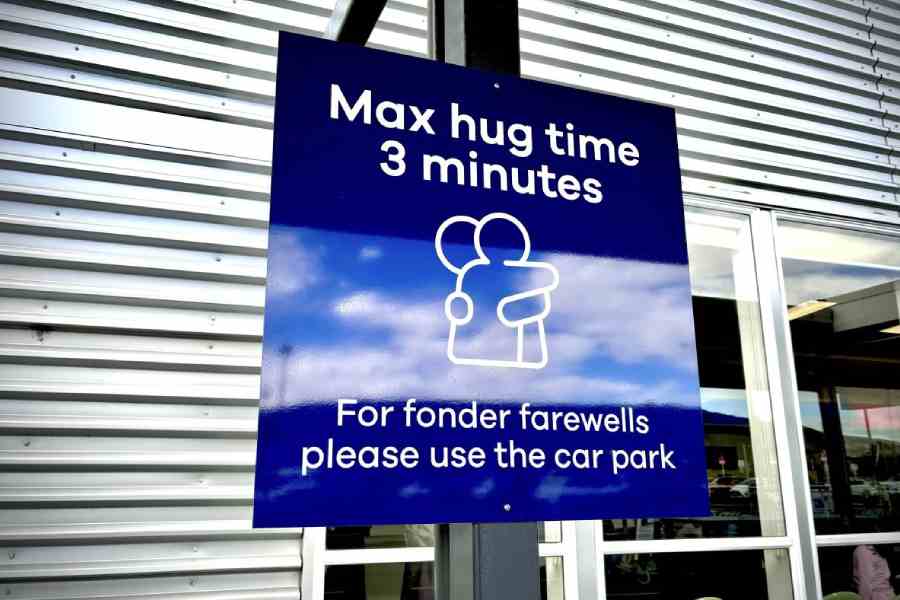Airports have tried an array of methods to combat traffic jams outside terminals, like dedicated taxi lanes, ride-share bans and police officers telling drivers to move along, or else.
Another tactic has now joined that list: Limiting hugs.
Last month, signs reading “max hug time 3 minutes”, appeared outside the terminal at Dunedin Airport in New Zealand, a polarising edict that has prompted international news coverage, debates and tongue-in-cheek commentary. Under an outline of two bodies locked in an embrace, the signs add, “for fonder farewells, please use the car park”.
The signage is the airport’s “way of being a little quirky and reminding people that the drop-off zone is for quick farewells”, said Daniel De Bono, the airport’s chief executive. He added that the airport had recently changed the location of the drop-off area to enhance safety and traffic flow.
He tried to assuage any concerns about what the new rule might do to travellers’ brain chemistry. “Don’t worry, just a 20-second hug is enough to release oxytocin and serotonin, the happy hormones that boost well-being, so three minutes is plenty of time to say goodbye and get your dose of happiness,” De Bono said.
Social media users posted photos of similar signage around the world, with varying intimacy time limits, like a Danish airport that restricts the duration of kisses. There was no word on similar rules about hand-holding orlonging gazes.
Commenters responded to the change with a mix of outrage and humour. One Facebook user said of the time limit, “that’s inhumane”, though whether such remarks were meant sarcastically was not always clear.
Others noted that three minutes is actually a long time — maybe even awkwardly long — to be locked in a public display of affection, and even suggested that offenders find a hotel room. “That’s generous,” one commenter said. “A hug only takes 10 seconds.”
Other questions lingered. What would become of a couple caught in a four-minute embrace?
There are no dedicated hug police, said Megan Crawford, the airport’s general manager of business development, in an interview on Australia’s Today show. But staff do encourage people to keep goodbyes quick.
“They’re not going around breaking up long embraces, but they are out there trying to get people to move along,” Crawford said.
The new rule has attracted disproportionate attention, considering how few travellers pass through Dunedin, near the southern end of New Zealand’s South Island. The airport there reported welcoming over 900,000 passengers over the last year, compared to the tens of millions of travellers — and hugs — handled each year by global hubs like London’s Heathrow, Tokyo’s Haneda or New York’s JFK.
After Dunedin’s hugging time cap was initiated, Heathrow, Europe’s busiest airport, started displaying signs saying, “Max hug time, unlimited.” But there is a catch: Anyone dropping off a loved one outside of a Heathrow terminal, instead of at a parking area, must pay a fee of £5 (Rs 540).
New York Times News Service











